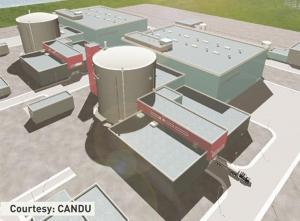
Scientists and environmentalists come out in favour of nuclear power
Public debate about energy is often framed as a choice between power sources and the environment. A growing body of climate scientists and environmentalists is changing that debate by speaking out for nuclear power. This is especially important as climate change emerges as the world’s largest environmental concern.
Prominent pro-nuclear environmentalists include Australian environmental consultant Ben Heard, Earth Institute director Jeffrey Sachs, and former Environmental Protection Agency administrator Carol Browner. And, after 20 years of fighting nuclear power, former Greenpeace Executive Director Stephen Tindale came out in favour of nuclear power in 2007.
These environmentalists don’t say that nuclear power is perfect. Instead, they consider it a realistic choice. Any path to a sustainable future, they reason, must include a low-carbon, low-cost power source that can be readily expanded. With today’s technology, only nuclear power fits that description.
Many scientists are backing their position. Perhaps the best-known of these proponents is Dr. James Hansen, Columbia professor in the Department of Earth and Environmental Sciences, and former head of the NASA Goddard Institute for Space Studies. In 2013, Hansen and three other scientists penned an open letter to those opposed to nuclear power and influencing environmental policy to reconsider their position. Dr. Hansen also released a video explaining the environmental advantages of modern nuclear power plant design.
A much broader supporting letter came out a year later. Two Australian scientists, Professor Barry Brook, Chair of Environmental Sustainability at the University of Tasmania and Professor Corey Bradshaw, Sir Hubert Wilkins Chair of Climate Change at the University of Adelaide, wrote An Open Letter to Environmentalists on Nuclear Energy, signed by 75 leading environmental scientists in six continents.
The letter recognized the value of renewable energy sources, but also their “real-world problems of scalability, cost, material and land use, meaning that it is too risky to rely on them as the only alternatives to fossil fuels.” It also called for an evidence-based approach to weighing the benefits of various energy sources, rather than a reliance on what it calls “idealistic perceptions.” The letter observes that “Nuclear power—being by far the most compact and energy-dense of sources—could also make a major, and perhaps leading, contribution.”
The climate debate was founded on a growing agreement among scientists that climate change is both real and human-made. Now that we’ve established that the problem is real, it’s important to keep the evidence in view as we debate how to secure our future. That picture includes nuclear power.



